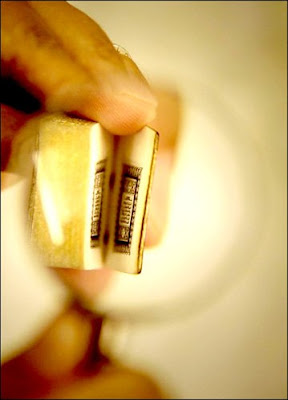In the name of Allah, the Merciful, the Compassionate!
O Prophet,
you are not responsible for their guidance;
Allah Himself shows guidance to anyone He pleases.
And whatever wealth you spend in charity,
it is for your own good.
As you spend of your wealth to win Allah's pleasure,
you will be given full reward for whatever you spend
and you will not be deprived
in the least of your rightful due.*1
(Surah-2 Al-Baqarah ~ Ayah-272)
Explanation:
*1- In the beginning Muslims tended to hesitate in helping
either their non-Muslim relatives
or other non-Muslims who were in need.
They thought that helping Muslims only constituted
'spending in the way of Allah'.
This verse rejects this attitude.
The purpose of this verse is to point out that
Muslims are not responsible for forcing true guidance
down the throats of people;
conveying the message of Truth to people
absolves them of the obligation incumbent upon them.
It is, then, for Allah either to favour
the recipients of the message with true perception or not.
In addition Muslims should not shrink
from helping their relatives
in the affairs of the world on the ground that
they are not following the true guidance;
they will be rewarded by Allah for whatever help they render
to needy persons for the sake of Allah.
O Prophet,
you are not responsible for their guidance;
Allah Himself shows guidance to anyone He pleases.
And whatever wealth you spend in charity,
it is for your own good.
As you spend of your wealth to win Allah's pleasure,
you will be given full reward for whatever you spend
and you will not be deprived
in the least of your rightful due.*1
(Surah-2 Al-Baqarah ~ Ayah-272)
Explanation:
*1- In the beginning Muslims tended to hesitate in helping
either their non-Muslim relatives
or other non-Muslims who were in need.
They thought that helping Muslims only constituted
'spending in the way of Allah'.
This verse rejects this attitude.
The purpose of this verse is to point out that
Muslims are not responsible for forcing true guidance
down the throats of people;
conveying the message of Truth to people
absolves them of the obligation incumbent upon them.
It is, then, for Allah either to favour
the recipients of the message with true perception or not.
In addition Muslims should not shrink
from helping their relatives
in the affairs of the world on the ground that
they are not following the true guidance;
they will be rewarded by Allah for whatever help they render
to needy persons for the sake of Allah.






























































